Philippe Le Corre discusses how the outcome of the French election will impact Chinese’s investments in and exports to France. This piece was originally published in the Nikkei Asian Review.
French President Francois Hollande’s term in office will end on Sunday after five stormy years on the domestic front.
On that day, the outgoing president, who is not seeking a second term, will know, along with the rest of the world, whether his successor will be centrist Emmanuel Macron or Marine Le Pen, leader of the far-right National Front. The two came in first and second respectively during first round voting on April 23, but investors and companies in Asia should be aware of the different paths French policy may take depending on who wins this weekend.
Unlike predecessors Jacques Chirac and Nicolas Sarkozy, Hollande came to power with almost no foreign policy background. A Socialist Party apparatchik and member of parliament, he had never served in government, nor had he engaged directly in international affairs.
Among Hollande’s key advisers was diplomat Paul Jean-Ortiz, a respected China hand who had served as head of the foreign ministry’s Asia-Pacific department. Jean-Ortiz became Hollande’s lead negotiator for international summits of advanced nations, along with Macron, who was then the president’s chief economic adviser.
Both men played a key role in shaping Hollande’s foreign policy between 2012 and 2014. This included building a smooth relationship with the Chinese leadership and attempting to correct a previously excessive focus on Beijing by developing new ties and partnerships with India, Japan, South Korea, Southeast Asia and Pacific states. Under Hollande, most of these places received French ministerial visits, which saw the signing of new business deals and cultural exchange agreements.
The president himself visited China, India, Japan, South Korea, Singapore, Malaysia, Indonesia, the Philippines, Laos, Vietnam and Australia. Australia last year became a close defense partner after signing a $40 billion submarine deal with French shipbuilder DCNS. Also last year, India agreed to buy 36 Rafale jetfighters for $8.8 billion from Dassault Aviation. Other Asian countries with strong French defense connections include Singapore, Indonesia and Malaysia.
Personal experience
So far, Asia has not featured prominently in the 2017 presidential debate. Top issues have ranged from security and counter-terrorism to labor reforms, immigration, national debt and trade.
Having served as economy minister from 2014 to 2016, Macron has had more direct experience with Asia. He was in office when France hosted Chinese President Xi Jinping to celebrate 50 years of bilateral diplomatic relations and the two countries’ “global partnership” and made official visits to Japan, South Korea and India. He has been involved in discussions of China’s rising investment in Europe, especially in relation to sensitive technologies.
“One cannot like the Chinese who buy our Airbus planes and dislike those who invested in our airport,” Macron said in February when visiting Toulouse airport, which is controlled by Chinese investment group Friedmann Pacific Asset Management. The airport’s acquisition has been controversial as Toulouse is home to a major manufacturing center and the headquarters of the European aircraft maker.
Within the EU, foreign direct investment remains a national prerogative, but officials in the French economy ministry know about the pros and cons of Chinese investment. During the campaign, Macron signaled his support for a joint European initiative to address China’s global economic role. Having participated in the 2015 Paris climate agreement talks, he is keen to work with China and India on environmental issues.
As for the National Front, it seems ready to impose high tariffs in certain sectors such as renewable energy. “[There is] no way we would be buying solar panels in China,” said Philippe Murer, one of Le Pen’s economic advisers, in January. The National Front favors development of domestic champions in renewable energies.
If elected president, Le Pen might also pull French national grid operator EDF out the Hinkley Point nuclear project in the U.K., according to Murer. China General Nuclear Power holds a one-third stake in the project, which has already encountered other obstacles. Le Pen’s party feels France should focus on the domestic nuclear industry, but for both China and the U.K., French withdrawal would be a serious blow.
Pacific sailings
Defense Minister Jean-Yves Le Drian has been one of Macron’s key supporters. He impressed participants of the Shangri-La Dialogue on international security in Singapore last June when he suggested that European navies could coordinate patrols in the South China Sea. As Beijing becomes more active in the region, he said naval patrols could reinforce order if the laws of the sea are not respected. “If we want to contain the risk of conflict, we must defend this right, and defend it ourselves,” he said.
The French navy, which has a presence through France’s Pacific territories, is deployed several times a year in the South China Sea. With a presence in New Caledonia, Wallis and Futuna, French Polynesia and Clipperton Island as well as Indian Ocean territories, France has the world’s second-largest maritime domain. It also works with the U.S., Australia and New Zealand in the Quadrilateral Defence Coordination Group on maritime security efforts and resource management issues in the Pacific. France has been supportive of EU policy toward the region, especially in regards to the South China Sea.
Le Pen likely favors a stand-alone navy presence in the Pacific too. As a member of the European Parliament, she had harsh words for China last year during a panel discussion on whether the EU should treat Beijing as a market economy.
“Quasi-free trade with China has been devastating to the French and European industries,” she said. “Huge legal, social and environmental discrepancies between China and Europe have led to the destruction of millions of European jobs and their replacement by Chinese workers.” She advocates “smart protectionism” against Chinese imports and a “return to the nation state.”
As a populist politician eager to defend “national values” and local industries, it is unlikely Le Pen would support more trade with China, especially given France’s large trade deficit with Beijing, but she has no experience with Asian affairs. Most notably, Le Pen is threatening to pull France out of the eurozone if she wins the presidency. This would create massive uncertainty for Asian and other foreign investors.
No doubt candidates in France’s parliamentary elections next month will debate issues involving trade with Asia. Growing French companies are keen to further open export markets outside Asia. The question is how much support they will get from Hollande’s replacement.
The Brookings Institution is committed to quality, independence, and impact.
We are supported by a diverse array of funders. In line with our values and policies, each Brookings publication represents the sole views of its author(s).
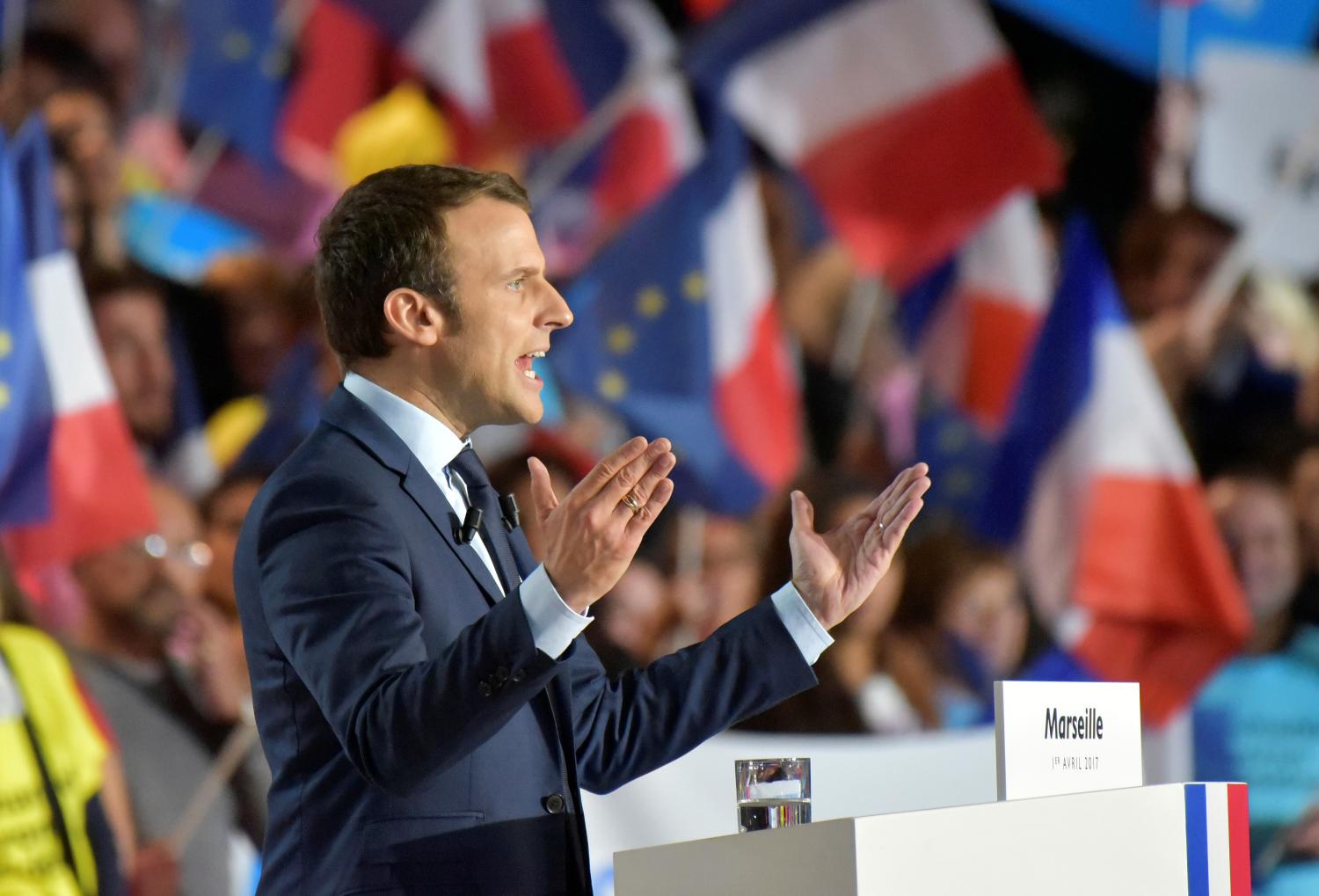
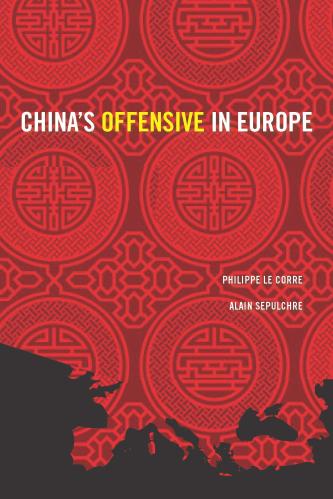
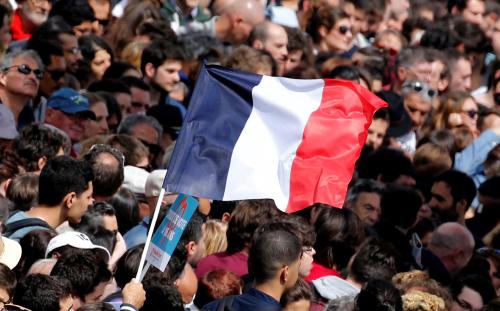
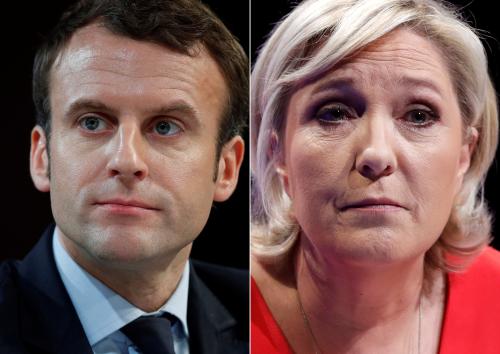
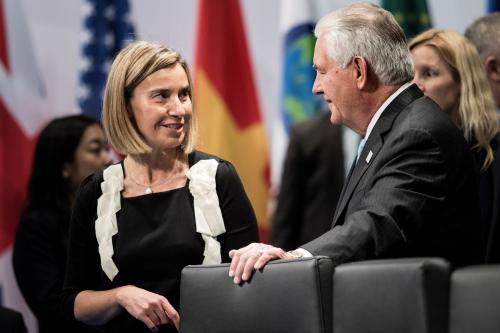



Commentary
Op-edFuture of French engagement with Asia rides on vote
May 3, 2017